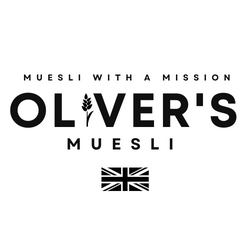Sustainability and the environment are centre stage now, for good reason. More and more attention is being given to the environmental impact of our food production too. However, there's a lot of misinformation floating around and it's an emotive issue for many people.
Agriculture is unique in that it's one of the few sectors of the economy that not only produces carbon emissions, but has the ability to actively take carbon out of the atmosphere too, for example by storing more carbon in soils or hedgerows. You could write entire books on the relative sustainability of different farming practices, but it's fair to say that some huge changes need to happen to how we grow food.
What's the issue then? Well, farmers in the UK have been directly and indirectly incentivised to rely on chemical inputs and fossil fuels to grow crops (a future blog on this will follow), such as in the form of artificial fertiliser or crop protection products. Whilst some would argue that this has allowed us to feed a growing population, the environmental impact of this is vast. In many cases, this has been driven by factors out of the control of most farmers.
Not only are there huge carbon emissions associated with the production and application of fertiliser, most cropland in the UK is degraded, meaning it's much less resilient to extreme weather, at greater risk of erosion and depleted of wildlife. Likewise, where chemicals are applied, there's also the risk that they enter watercourses and accumulate in the environment. Many farmers plough their fields between crops to control weeds and prepare the soil, but this has the effect of releasing carbon stored in the soil and increasing the likelihood of soil erosion when it rains.
At the moment about 45% of the UK land area is used for growing crops. This is mainly wheat, barley and oilseed rape, with limited diversity. There are lots of factors that influence whether these crops end up going to humans or being fed to animals, but overall, the majority of the harvest each year ends up going to animal feed (stay tuned for another blog post on how we can get more crops into the human food chain). Whilst animal feed is an effective way of making use of waste products or byproducts of human food production, there is a strong argument that every effort should be made to ensure that where crops are grown, they go directly to feed humans.
What's the solution to this? How can we produce nutritious food in the future, whilst safeguarding our environment and tackling climate change? It's not simple, but fortunately there is a steadily increasing number of pioneering farmers who are tackling this challenge head on. The aim of Oliver's Muesli is to help directly support this.
Every month, I'll be covering a key issue in the farming sector and discussing what the solutions look like. I'll be looking at farming practices, the supply chain, profiling some of these pioneering farmers and much more!

